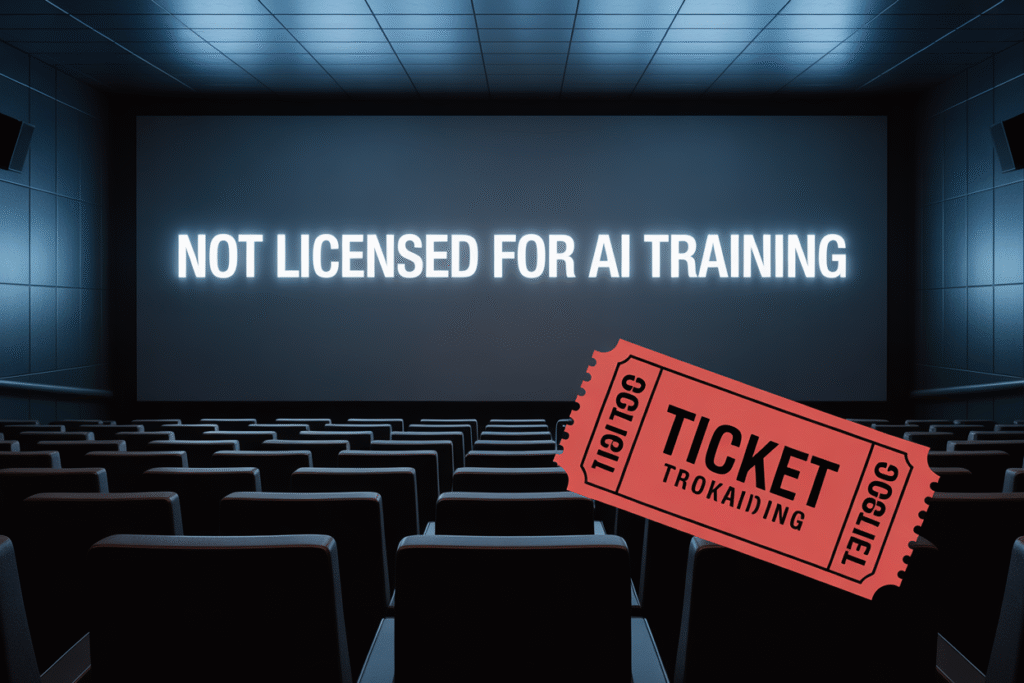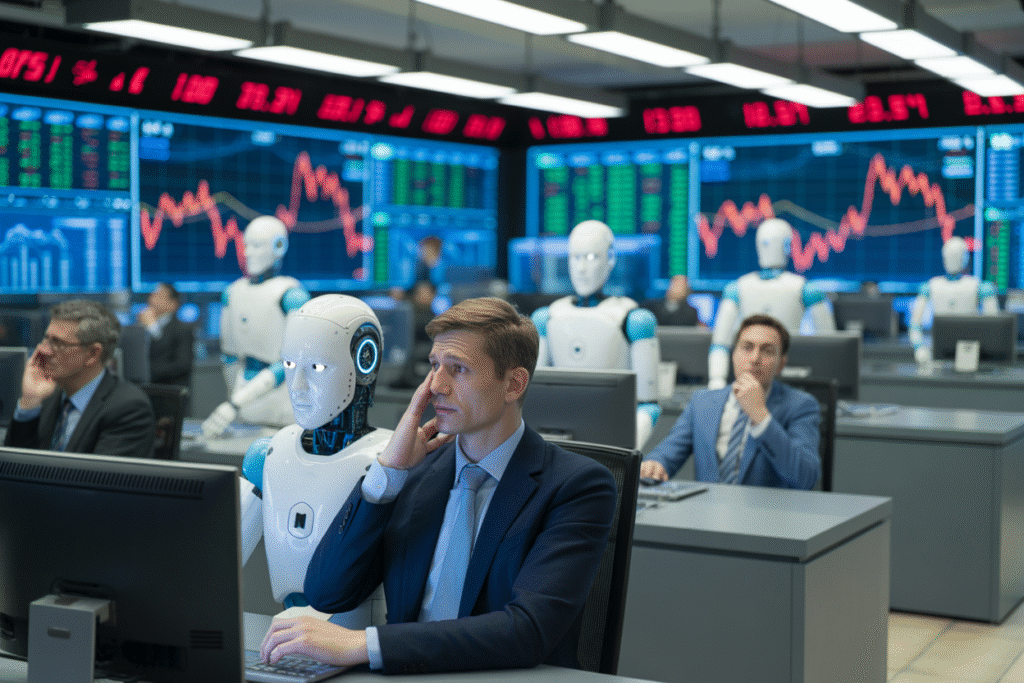Universal tucked a quiet sentence into the FNAF 2 credits—and it could redefine how Hollywood walls off AI from human creativity.
Imagine waiting two hours for a jump scare, only to learn the credits are scarier than any animatronic. Universal Pictures just pulled that trick on AI. As of August 6, all prints of Five Nights at Freddy’s 2 carry a five-word warning: “Not licensed for AI training.” How did a teen-slasher sequel become ground zero in the AI-replacing-humans debate?
A Disclaimer in the Dark
Friday’s test screening ended like any other—until the copyright notice rolled. Spectators started filming the screen as the following line glowed red: “Any use of this motion picture for machine learning or AI model training is expressly prohibited.” Phones lit up. Lawyers probably lit up even brighter.
Universal isn’t bluffing. Studios have already filed four federal suits this year against scrapers who fed trailers and dailies into training sets. By sneaking the clause into the final, unreleased sequel, Universal turns its side-eye at AI into binding on-screen law.
Buried legal jargon is Hollywood’s favorite stinger, right after the end-credits scene. This time the surprise twist isn’t a new villain—it’s Hollywood planting its flag against the villain everyone fears: soulless bots in the writers’ room.
Why This Scene Matters Outside the Theater
AI replacing humans is no longer a Twitter fight; it’s a bargaining chip in union contracts. Last month the Screen Actors Guild warned studios that reshoots could be digitally cloned without extra pay. Universal’s disclaimer flips the script—reclaiming the main narrative for people who sweat under camera lights.
Think of it as an estate fence for human creativity:
• Actors keep control of their face, voice, and performance.
• Writers get comfort that old plotlines won’t be recycled into generic slop.
• Fans receive the human chaos that makes Freddy’s jumps actually twitch-worthy.
But the fence is razor wire, not velvet rope. Anyone who violates it risks statutory damages up to $150,000 per infringement. For a studio whose library stretches back over a century, that math is an armored vault.
Red Flags for Silicon Valley Scrapers
Remember Clearview AI scraping social media selfies? One lawsuit later, the company owes $50 million. Multiply that by 1,100 feature films in Universal’s catalog and you get the scale of what’s at stake.
Tech engineers are scrambling. Dataset marketplaces like LAION already exclude Netflix and Sony titles, but Universal just closed the final gap for one of the most shareable horror properties on Earth. Where do they get training data now?
Some speculate on synthetic alternatives—machines teaching machines in an endless echo chamber. Others lean toward a black market of encrypted torrents, a cyber speakeasy where masked usernames pantomime “Uncle Freddy said it was okay.” Both routes feel grimier than any haunted pizzeria.
The Ripple Outside the Ticket Line
Every industry is taking notes. Fashion houses just swapped out Vogue’s AI cover model after backlash; game studios are quietly redrafting EULAs following Xbox’s accidental AI voice-scam. What started as a horror-movie stunt is shaping up to be the de-facto template for keeping AI replacing humans from actually, well, replacing humans.
Expect these ripple effects:
• More credits are getting footnotes—streamers love that CPU space anyway.
• Union negotiators now have a case study for their next power play.
• Venture capitalists face awkward pitch meetings: “How will you license data?” suddenly bumps valuation calls twenty rungs down the ladder.
Still, the loudest ripple hits us viewers. A popcorn flick just gave language to a fear most of us struggle to articulate: the moment when machines sing our lullabies and charge admission.
How to Watch Your Six Without Missing the Movie
AI ethics isn’t a credits roll; it’s an everyday decision. Every time we click ‘accept’ on an app update, we vote on the future we’re buying.
Tonight, check your streaming queue. Notice the hoard of zombie reboots? Two years from now they could star fully synthetic actors—with zero union coffee breaks—unless contracts like Universal’s become standard boilerplate. Meanwhile, support the actors, writers, and theater staff keeping the popcorn hot and the monsters scary in the analog flesh.
Write a quick email to your reps about AI scraping, leave a glowing review for your local cinema, or simply buy the ticket instead of the deepfake rip. Small moves still count when multiplied by millions.
Share this story with a friend who thinks AI replacing humans is science fiction. Then whisper it with Freddy’s voice: “Five more hours until the next crisis—you better stay awake.”


